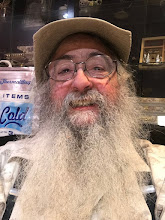Thursday, November 20, 2008
Thursday, November 06, 2008
On asking "Are you Jewish?"
In an article in the Forward, Dani Shapiro writes about being stopped on the street in Brooklyn...
This introspection ignites within her her innate sense of Jewishness.
For many of the young men who stand on random street corners, visit hospitals or old-age homes or shopping malls, asking the strangers they meet if, indeed, they are Jewish, the task set forth by the Rebbe is a difficult one. Besides the majority of strangers who are not Jewish, there is a subset of urban Jews who deny the association.
In my college years, I stood on a street corner at the University of Maryland, asking this same question of passers-by. I would get various responses.
Since Chabad Chassidim are not missionaries, the non-Jews aren't really what we concentrate on. Those few who self-identify as Jewish, but seemingly didn't know anything about the holiday or the mitzvos involved were few, but satisfying.
The most unsatisfying is the obviously Jewish person who denies, publicly their Jewishness. But, in Ms. Shapiro's story, we see the foresight of what the Rebbe asked of his Chassidim.
Getting a Jew to publicly affirm their Jewishness and to do a mitzva is a good thing. And, the person who sparks this affirmation can feel good about it.
But, I believe, the Rebbe was really looking for something else, something deeper. How many of the people, asked on the street to affirm their Jewishness, deny it, but, as Ms. Shapiro has done, later ask themselves through an introspective process about how they self-identify. And, come to the conclusion that yes, they are Jewish. Not in the sense, necessarily, that they do the rituals involved, or belong to the organizations, or even believe the same way, but, recognize in themselves an innate Jewishness that binds us all together (similary, in a fashion, to how the lulav's different parts are bound together and the mitzva can only be done when the lulav is held closely to the esrog). Yet, the Chassid on the street corner never gets the sense that he accomplished anything at all.
Here, then, is the genius of the Rebbe. Binding Jews together by their self-affirmation of their Jewishness while teaching humility and self-nullification to the "soldiers" in his "army."
I was stopped by a bearded man in a top hat, his long black coat flapping.This triggers mental and emotional introspection for her.
“Excuse me, are you Jewish?” he asked.
"Sorry, no," I stammered.
I felt uneasy as I continued to walk. When is it ever appropriate for a Jew to disavow being a Jew? I know why I did it: The last thing I felt like dealing with was the lulav he was thrusting at me, the etrog — he wanted me to say the Sukkot blessing.
I tried to justify my lie to the Hasid by telling myself that to him, I was not a Jew. Not a real Jew. I didn’t even belong to a temple. I had moved far away from all that. So far that the words slipped from my mouth, a slippery, bitter pill: No, not Jewish.
This introspection ignites within her her innate sense of Jewishness.
I have promised myself that I will respond differently the next time a bearded man in a black flapping coat approaches me on the street. “Are you Jewish? Are you Jewish?” It is not safe, ever, even for a misguided moment, to disavow such an essential part of who I am. Jewish? Yes, I would have to say.Now, most likely the only folk who are on a random street corner asking strangers if they are Jewish, and if so, providing them with the opportunity to shake a lulav and esrog are the Chabad Chassidim centered in Crown Heights, Brooklyn. The Lubavitcher Rebbe, zt'l, made a point of having his chassidim trained to go out, in an effort to get Jews, and especially Jews who are far from observant to do mitzvos. In this case, the mitzva of shaking the four species on Sukkos.
For many of the young men who stand on random street corners, visit hospitals or old-age homes or shopping malls, asking the strangers they meet if, indeed, they are Jewish, the task set forth by the Rebbe is a difficult one. Besides the majority of strangers who are not Jewish, there is a subset of urban Jews who deny the association.
In my college years, I stood on a street corner at the University of Maryland, asking this same question of passers-by. I would get various responses.
- There were those (most likely not Jewish) who would just look at me, then keep walking.
- There were those (usually self-identified as Christian) who would say no, but would ask questions about Judaism, the holiday of Sukkos, and the opportunity I was offering for Jews to do a mitzva.
- There were those Jews who had never heard of the holiday, and were intrigued to feel a part of it.
- There were those Jews who sheepishly admitted that they knew of the holiday, but, had just not had the opportunity to do the mitzva yet. And
- There were those Jews who denied their Jewishness. (Although the large mogen david necklace (on the guys) and mogen david earrings (on the girls) were in clear contradiction to their denials.)
Since Chabad Chassidim are not missionaries, the non-Jews aren't really what we concentrate on. Those few who self-identify as Jewish, but seemingly didn't know anything about the holiday or the mitzvos involved were few, but satisfying.
The most unsatisfying is the obviously Jewish person who denies, publicly their Jewishness. But, in Ms. Shapiro's story, we see the foresight of what the Rebbe asked of his Chassidim.
Getting a Jew to publicly affirm their Jewishness and to do a mitzva is a good thing. And, the person who sparks this affirmation can feel good about it.
But, I believe, the Rebbe was really looking for something else, something deeper. How many of the people, asked on the street to affirm their Jewishness, deny it, but, as Ms. Shapiro has done, later ask themselves through an introspective process about how they self-identify. And, come to the conclusion that yes, they are Jewish. Not in the sense, necessarily, that they do the rituals involved, or belong to the organizations, or even believe the same way, but, recognize in themselves an innate Jewishness that binds us all together (similary, in a fashion, to how the lulav's different parts are bound together and the mitzva can only be done when the lulav is held closely to the esrog). Yet, the Chassid on the street corner never gets the sense that he accomplished anything at all.
Here, then, is the genius of the Rebbe. Binding Jews together by their self-affirmation of their Jewishness while teaching humility and self-nullification to the "soldiers" in his "army."





